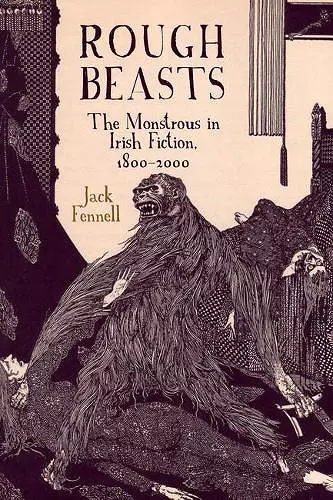Rough Beasts
The Monstrous in Irish Fiction, 1800–2000
Format:Paperback
Publisher:Liverpool University Press
Published:1st Aug '22
Currently unavailable, and unfortunately no date known when it will be back

Monsters and other supernatural malefactors disrupt the human world in distinct ways: werewolves and cunning beasts challenge the philosophical distinction between human and animal; demons offer deceptive pacts to prey upon our delusions of mastery over the world; capricious fairies claim dominion over the landscape and exact disproportionate revenge for our intrusions. When a monster appears, human history must halt until it departs.
Irish history, meanwhile, has been punctured by dramatic ruptures, such as the Great Famine of 1845 to 1849. Monstrous imagery flourishes in these ruptures, so it is hardly surprising that Irish literature boasts a great many rough beasts and ravenous corpses.
In this book, various monsters from Irish literature are considered in different historical contexts, to illustrate the role of horror and monstrosity in Ireland’s history and culture. In both English- and Irish-language texts, from the Act of Union to the death of the Celtic Tiger, hordes of night-creatures arise in times of crisis, embodying chaos and absurdity. Building upon the critical framework established in Irish Science Fiction (2014), this study looks at the specific ways in which ghosts, malevolent magicians, shape-shifters, cryptids and the corporeal undead oppose human agency by ‘breaking history’.
‘What is most impressive about this book is the sheer range of theoretical and fictional material with which it engages. [….] It is a very welcome addition to the growing scholarship on Irish horror fiction.’
Jarlath Killeen, Books Ireland Magazine
'[Rough Beasts] opens up new possibilities in both Irish studies and the theory of horror. For this reason, it deserves the attention of any reader researching a definitively Irish gothic.'
William Hughes, Victorian Studies
ISBN: 9781802076936
Dimensions: unknown
Weight: unknown
296 pages